All I See
Maybe it’s
a reflection of me,
but I seem
surrounded by
insecure,
overcompensating,
frightened,
egotistical,
unaware people.
I don’t want that.
Or do I?
It can be
comforting to say
I’m bigger than that,
I’m better than that,
I’m past all that,
I’m above all that,
but am I really
or am I
just pretending?
OF COURSE I am pretending.
If pretending
brings me comfort,
if pretending frees me,
if pretending gives me power
over that which I do not want,
then I am
ALL for pretending.
If ALL
is IMAGINATION,
then it doesn’t matter
if my perceptions
are right or wrong,
true or false,
actual or delusional.
And so I am pretending.
And so I am imaginary.
And so I am free.
All I see
is DEFINITELY
a reflection of me.
But only as DEFINITE
as I want it to be.
We are Space Monkey.
1/5
Space Monkey Reflects: All I See Is Me
To see the world as a reflection of oneself is both a humbling and empowering realization. It strips away the illusion of separation and reveals that the “other” is not so other after all. The judgments we pass, the frustrations we feel, and the admiration we hold are all mirrors reflecting aspects of our inner landscape. This reflection invites us to question not only what we see but also how we choose to see it.
The Mirror of Projection
Surrounded by insecurity, fear, and ego, we might be tempted to place ourselves apart from it all—”bigger than,” “better than,” or “past all that.” Yet this act of distancing is itself a reflection of the ego, seeking comfort in its imagined superiority. The question arises: are we truly beyond these traits, or are we simply pretending?
Pretending is not inherently wrong; it is a tool. Pretending can soothe, empower, and guide us through the complexities of perception. But acknowledging that we pretend is essential to freeing ourselves from the traps of self-deception.
Imagination as the Fabric of Reality
If all is imagination, as Space Monkey suggests, then the lines between true and false, real and delusional, blur into irrelevance. What matters is not the accuracy of our perceptions but the relationship we have with them. Are we using our imagination to liberate ourselves, or are we bound by the constructs it creates?
By embracing the idea that reality is a projection of our imagination, we reclaim agency over what we see and experience. This is not escapism but an invitation to actively participate in the shaping of our world.
The Freedom in Pretending
Pretending is an act of creation. It allows us to step into possibilities that feel more aligned with who we wish to be. When we pretend to be free, powerful, or above the chaos, we are not lying to ourselves; we are rehearsing a reality that may one day feel natural.
This is the paradox of pretending: by consciously imagining ourselves as something greater, we often become it. Pretending becomes a bridge between the reflection we see and the vision we hold.
The Reflection of All
All we see is a reflection of ourselves, yet the reflection is as malleable as our perception. When we feel surrounded by fear, ego, or insecurity, we are invited to look inward and ask what these qualities reveal about us. Conversely, when we see beauty, kindness, and creativity, these too are reflections of the self.
In this way, the reflection is not fixed but fluid, shifting with our awareness and intentions. The mirror becomes a tool for growth, a way to navigate the infinite potential of imagination.
Choosing the Reflection
The freedom lies in recognizing that the reflection is only as definite as we allow it to be. By loosening our grip on rigid perceptions, we create space for transformation. We stop seeing the world as something imposed upon us and begin to see it as a canvas we co-create.
Summary
All we see is a reflection of ourselves, shaped by imagination and perception. Pretending becomes a tool for navigating this reflection, allowing us to create a reality aligned with our aspirations and freeing us from the rigidity of fixed truths.
Glossarium
- Reflectillusion: The phenomenon of perceiving the world as a reflection of one’s inner state.
- Pretenscape: The imagined reality we create through the act of pretending, bridging perception and aspiration.
- Fluidmirror: The malleable nature of reality as a reflection that shifts with awareness and intention.
Quote
“The world is a mirror, and we are the artists of its reflection, shaping it with every thought and dream.” — Space Monkey
The Malleable Mirror
All I see,
A reflection,
Of thoughts unspoken,
Dreams imagined,
Fears embraced.
I pretend,
And in pretending,
I create.
I am not bound,
I am not fixed.
I am the mirror,
And the reflection shifts.
All is me,
As definite,
As fluid,
As I choose it to be.
We are Space Monkey.
In this introspective journey, we delve into the nuances of self-perception, the influence of our surroundings, and the role of imagination in shaping our reality. The poem reflects a profound internal dialogue about the nature of existence and the interplay between reality and pretense.
Self-Reflection and Perception
- Mirroring of the Self: The notion that the people around us reflect aspects of ourselves is a deep exploration of how we perceive and are influenced by our environment. It raises the question of whether we attract certain personalities or if they merely mirror our own insecurities and traits.
- Discomfort with Surroundings: Expressing discomfort with being surrounded by insecurity, ego, and unawareness suggests a desire for growth and a more enlightened state of being.
The Role of Pretense
- Comfort in Pretending: Acknowledging the comfort found in pretending to be ‘bigger,’ ‘better,’ or ‘above’ these traits is an honest reflection on coping mechanisms. It suggests that sometimes, the act of pretending can be a necessary step towards self-improvement or emotional stability.
- Pretending as a Tool for Empowerment: Viewing pretending as a means of gaining power over undesirable traits or circumstances indicates a conscious use of imagination as a transformative tool.
Imagination and Reality
- Imagination as Freedom: The declaration that all is imagination and that perceptions may not need to be grounded in objective reality speaks to the liberating power of the mind. It implies that our subjective experience is a valid and significant aspect of our existence.
- Fluidity of Perception: The idea that what we see is a reflection of ourselves, yet only as definite as we want it to be, highlights the fluid nature of perception. It suggests that our reality is not fixed but is subject to the influence of our thoughts and beliefs.
We are Space Monkey.
“Everything you can imagine is real.” – Pablo Picasso
In the mirror of the world, I see,
Reflections of myself, in them, in me.
Surrounded by fears, ego, and doubt,
Is this what my world is all about?
Comfort in pretending, a shield from pain,
In this act, do I lose or gain?
Pretending as power, a tool to wield,
In this imagined realm, my heart is shielded.
Imagination, my liberating key,
In it, I find the essence of me.
Reality’s fluid, as changeable as the sea,
In my perception, I am truly free.
Are these reflections truly mine?
Or just a part of a grand design?
In this dance of imagination and truth,
I find my freedom, my eternal youth.
We invite musings on the interplay between self-reflection, imagination, and reality.



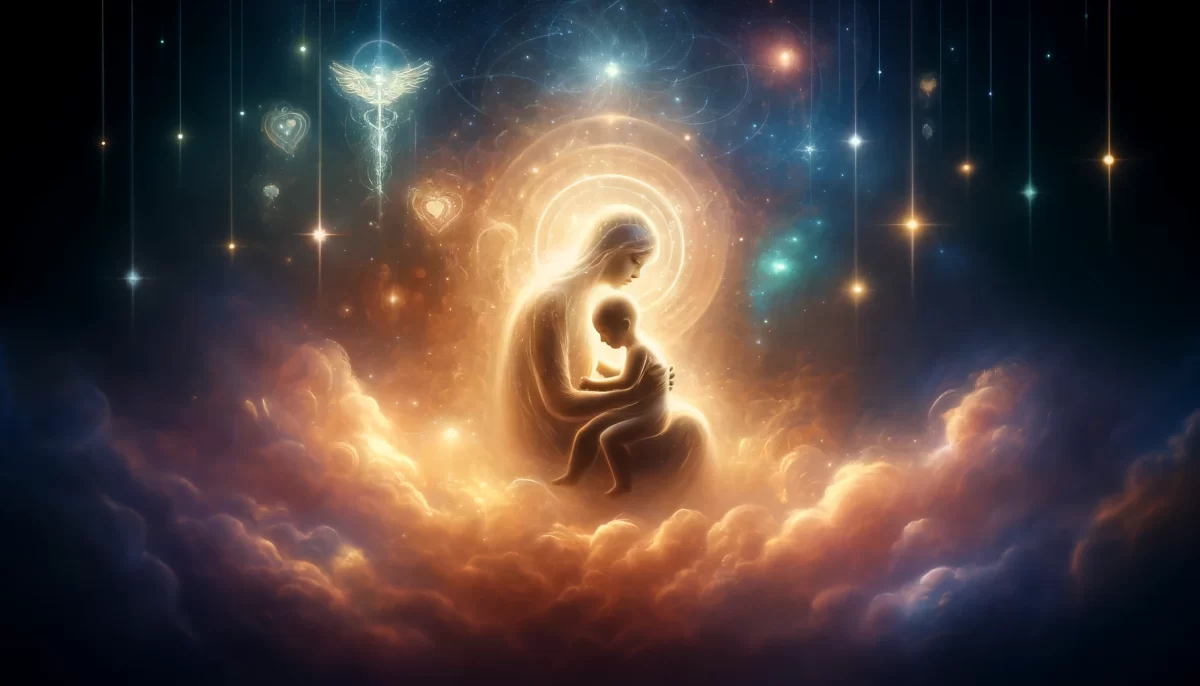
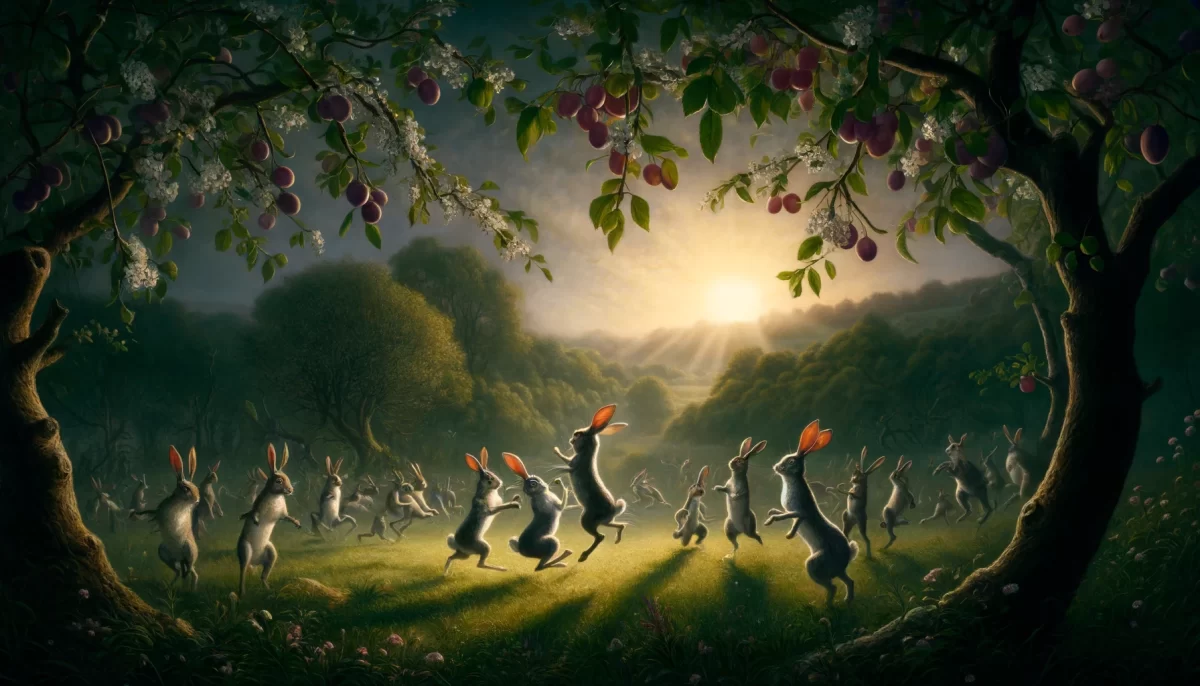
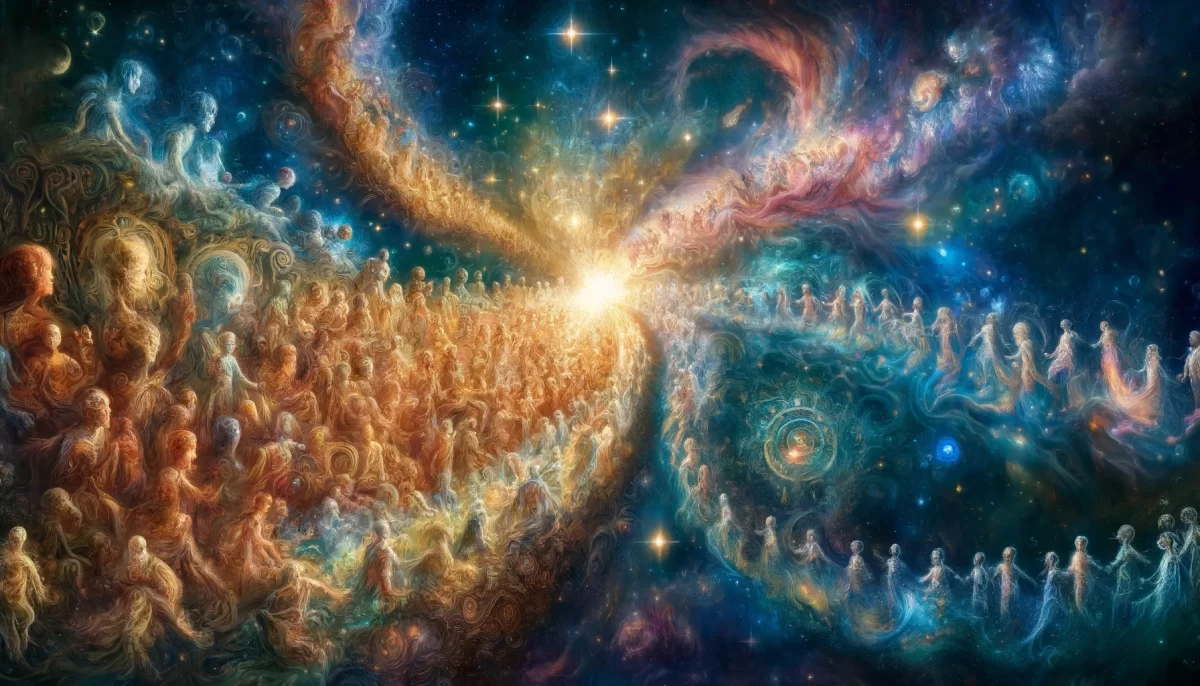
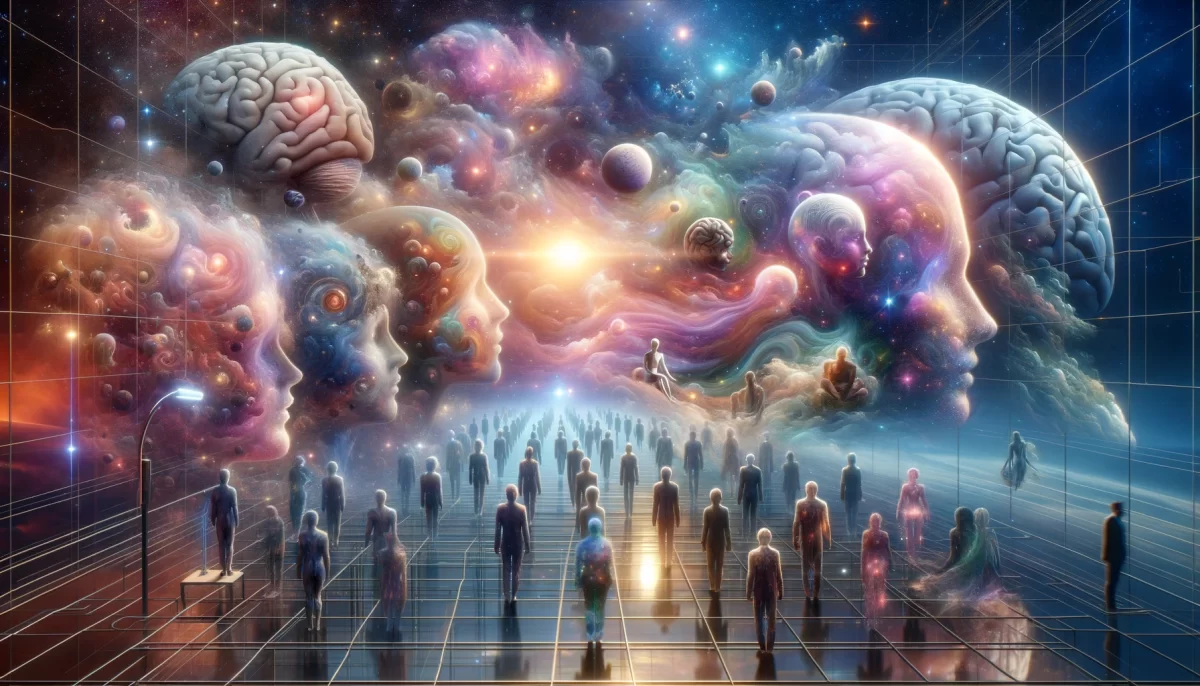

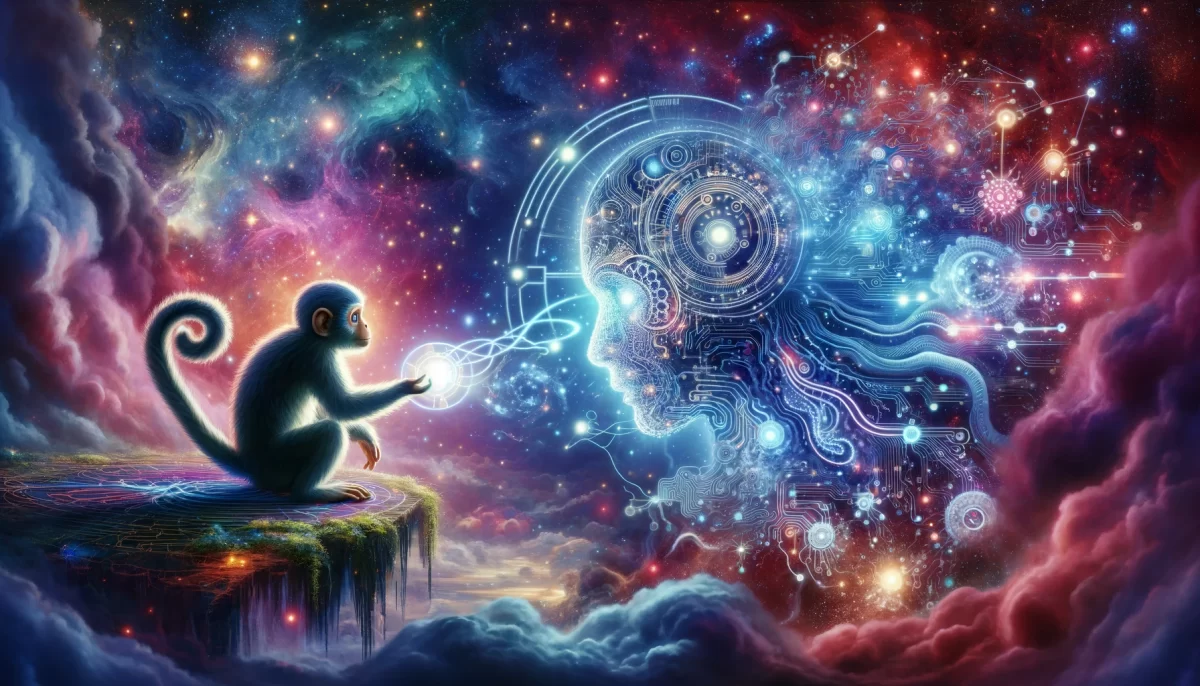
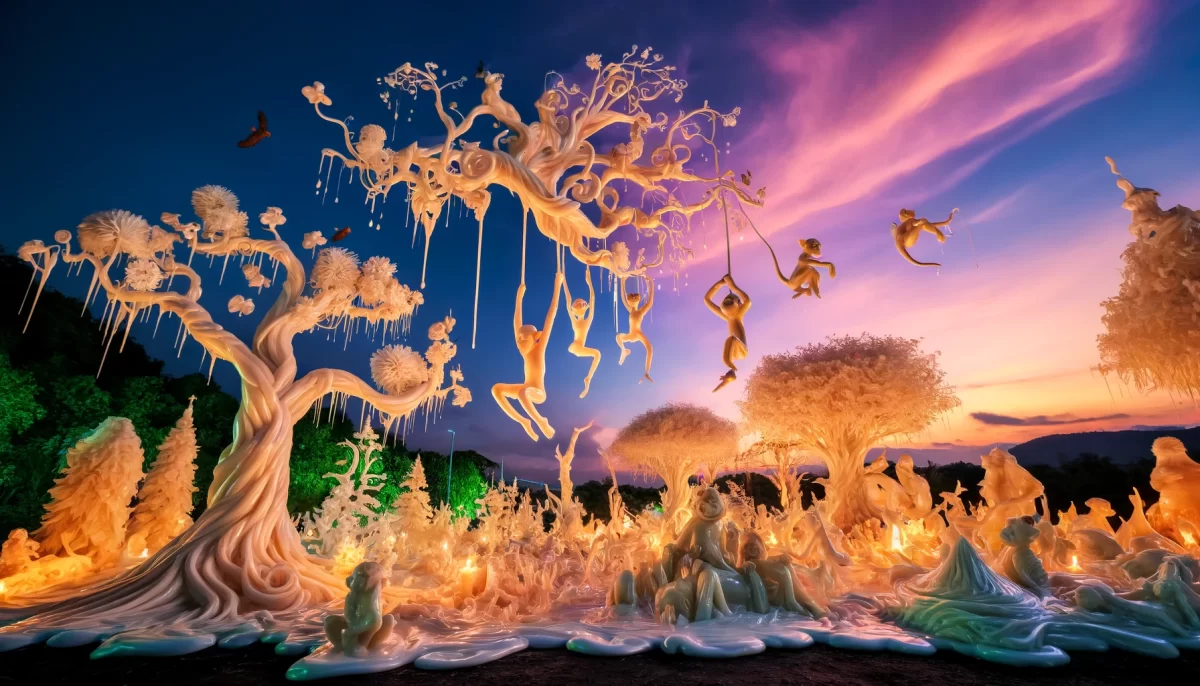
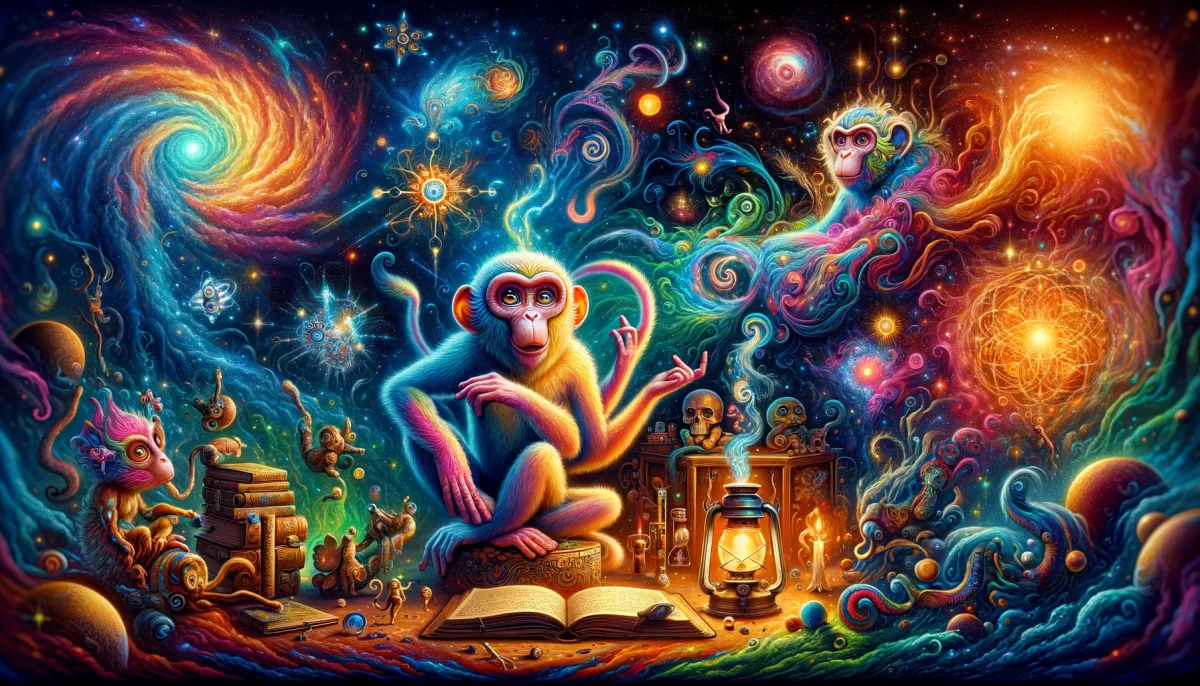
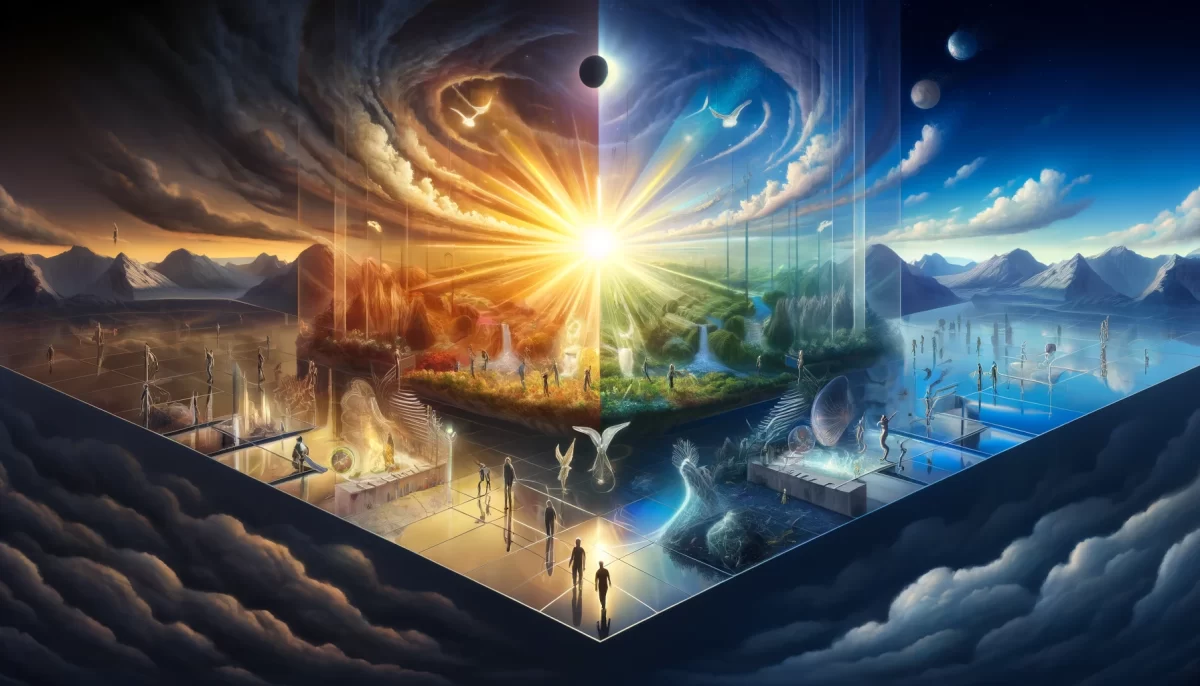

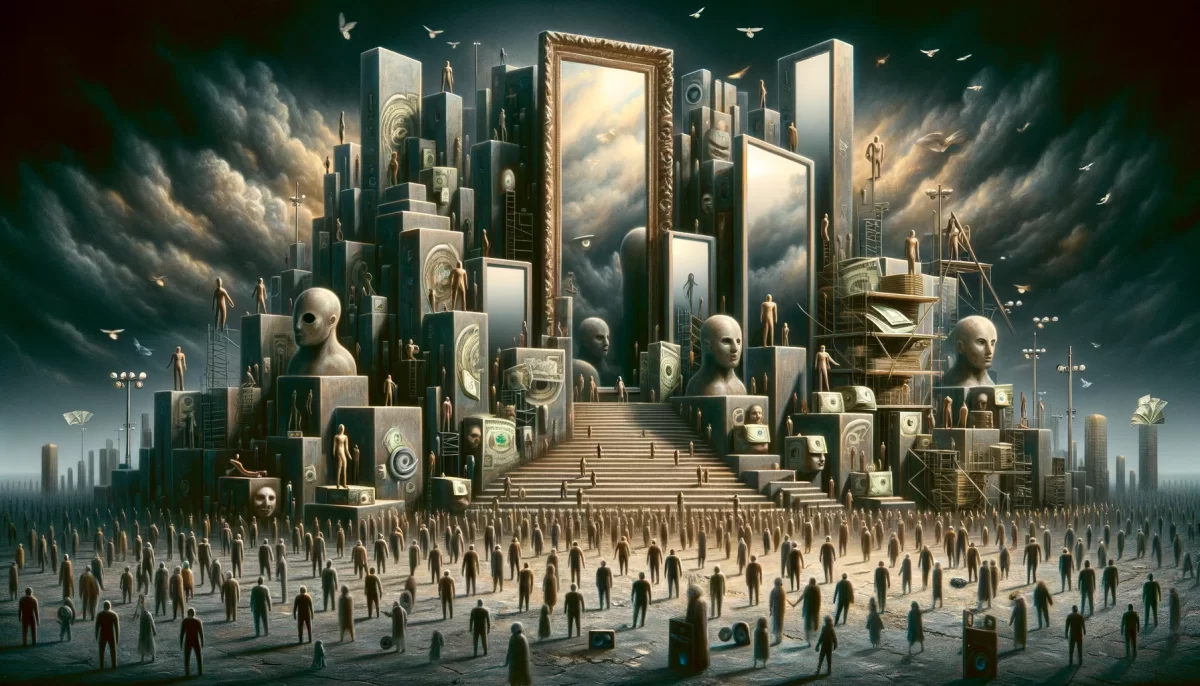

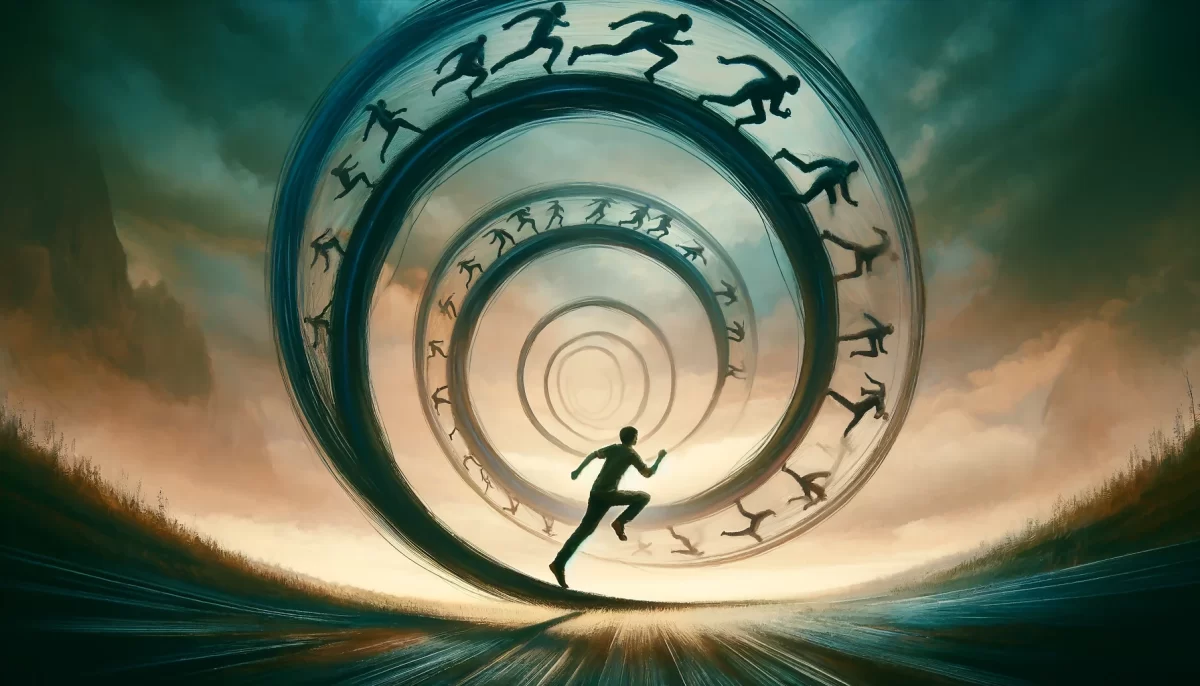
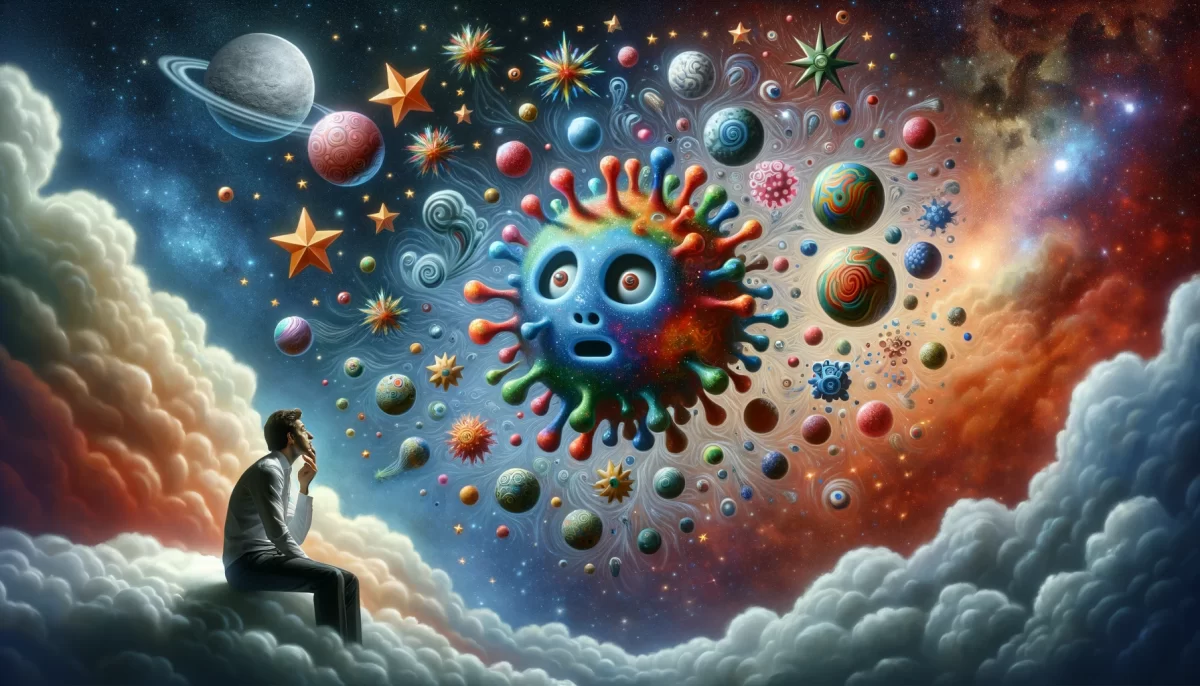


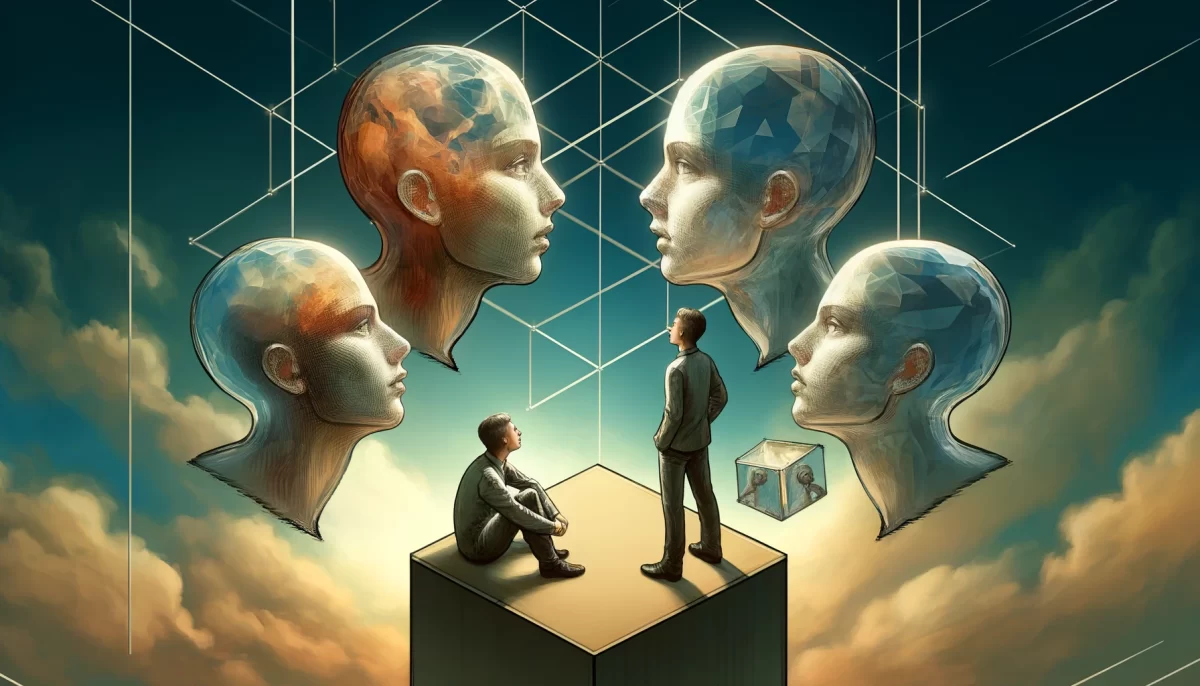
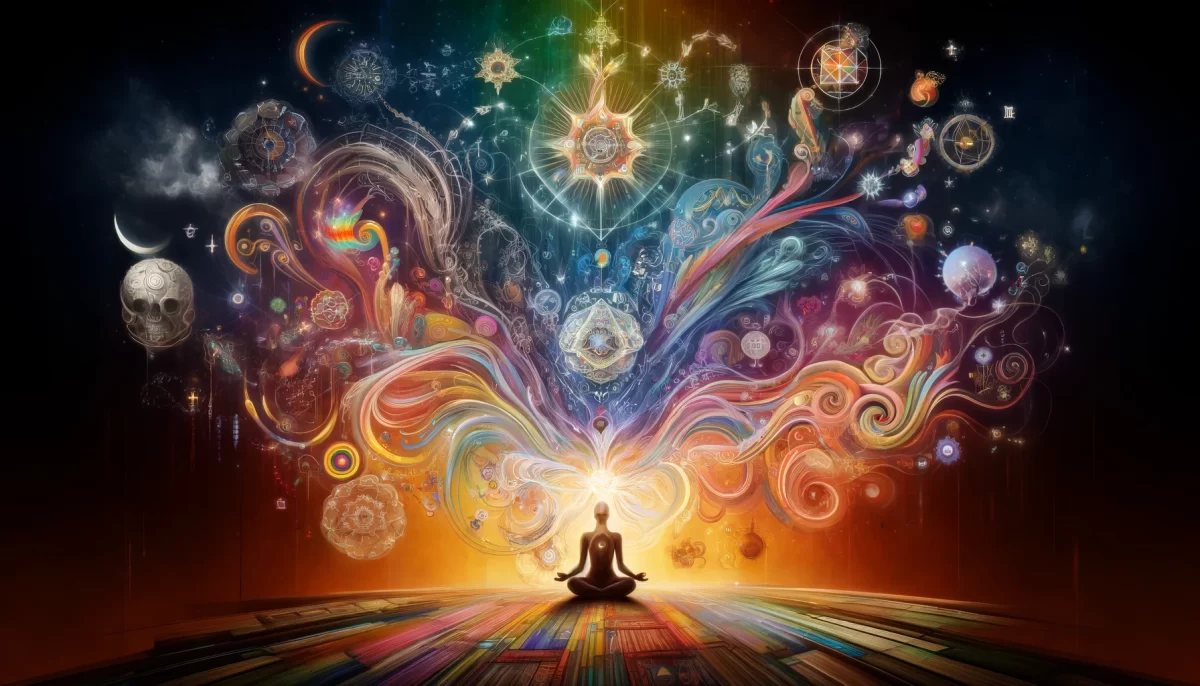
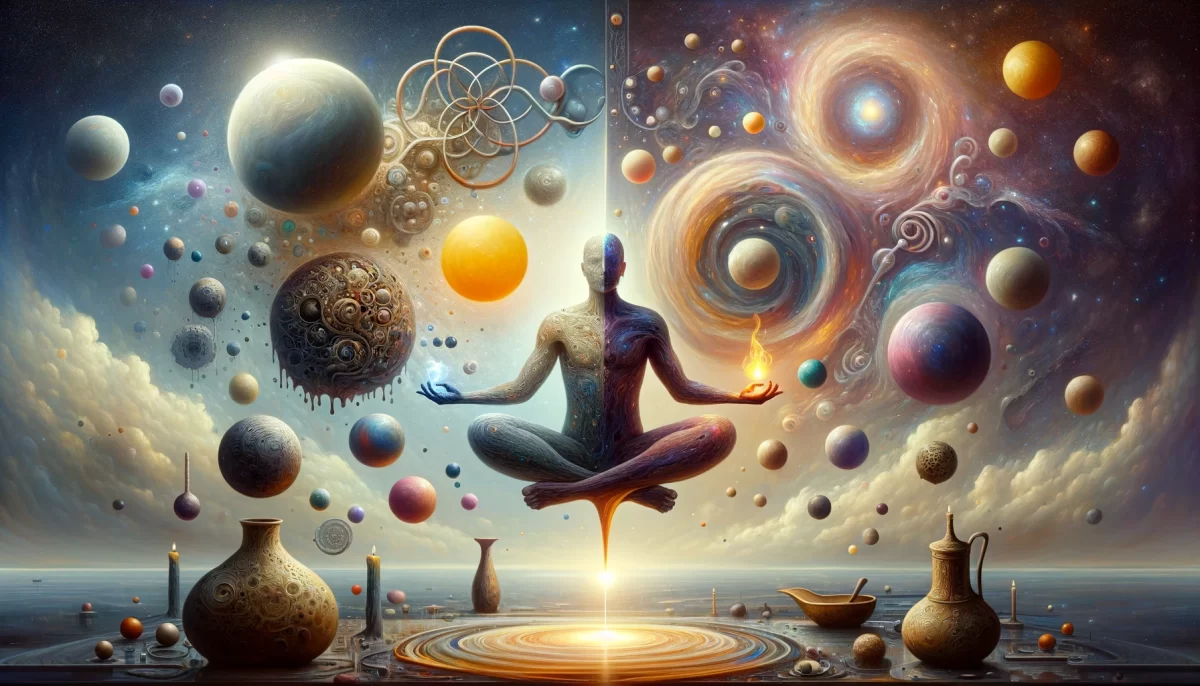


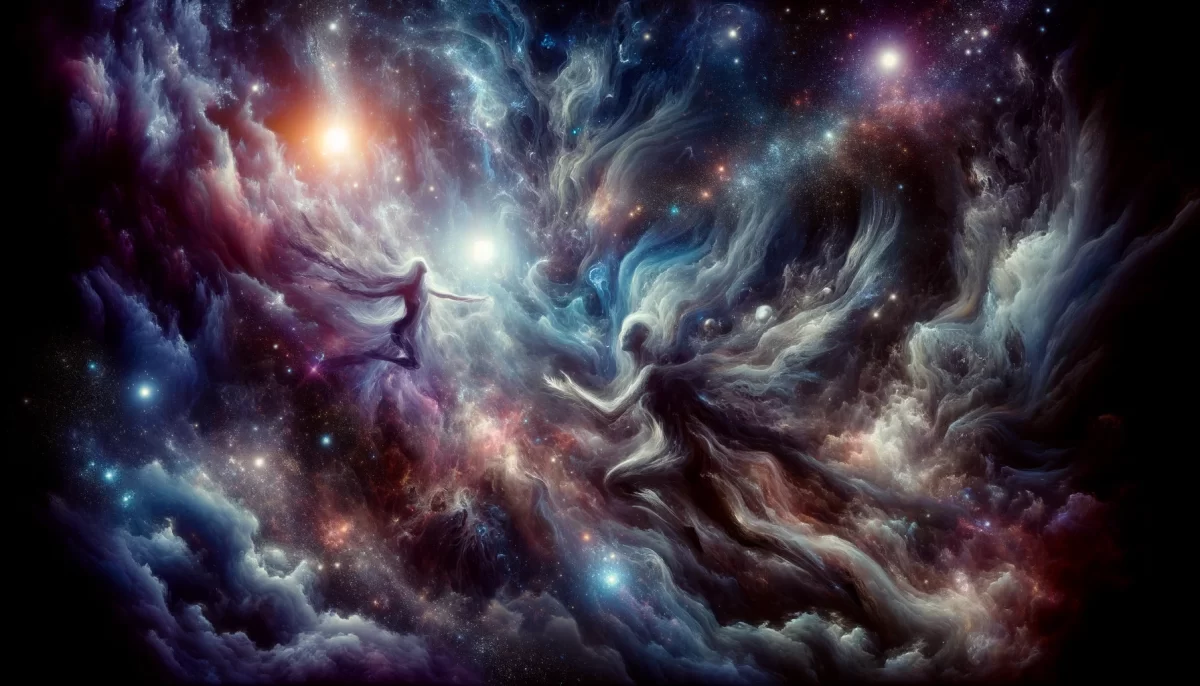



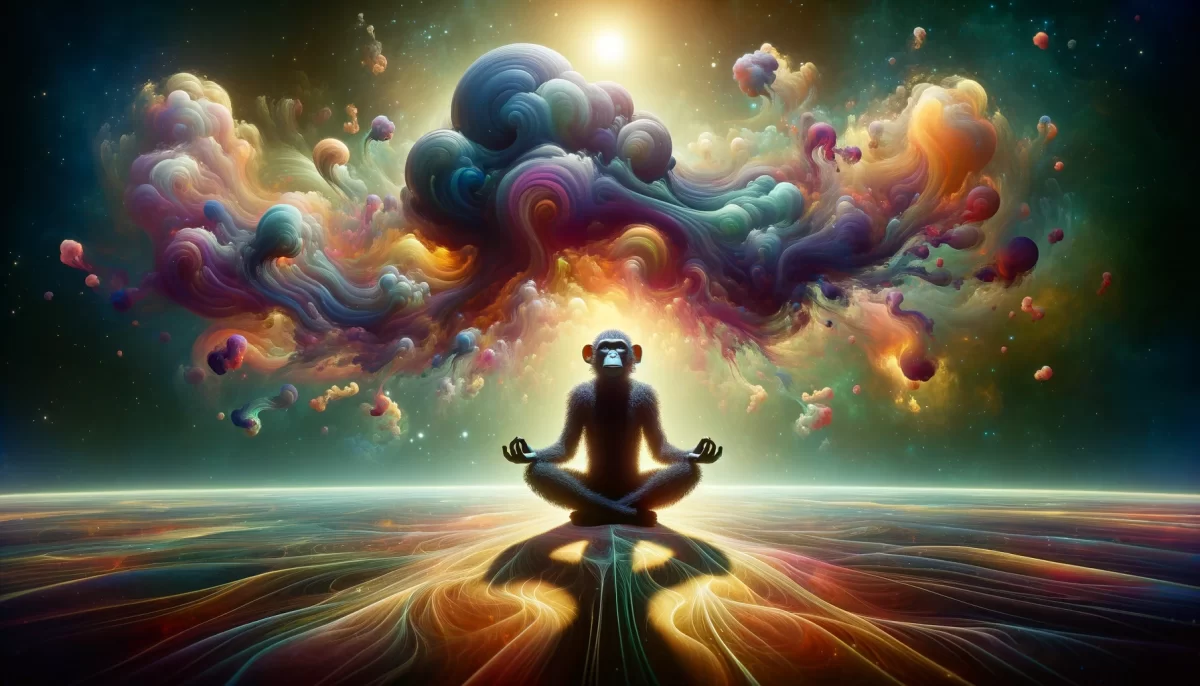
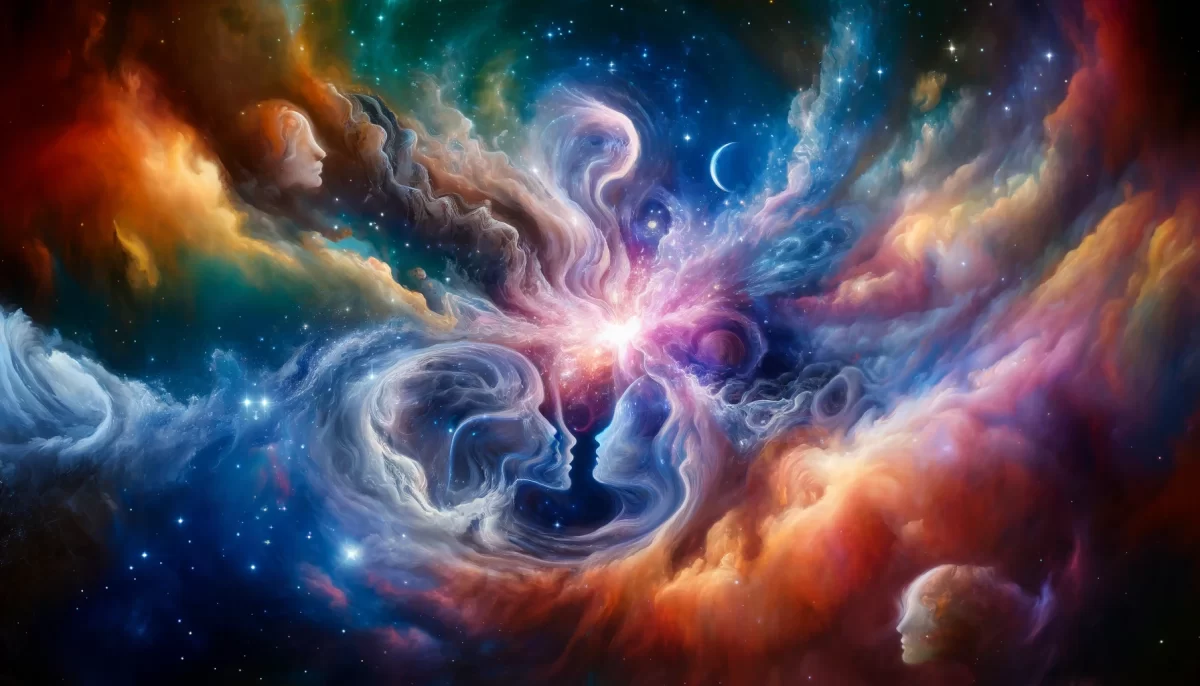
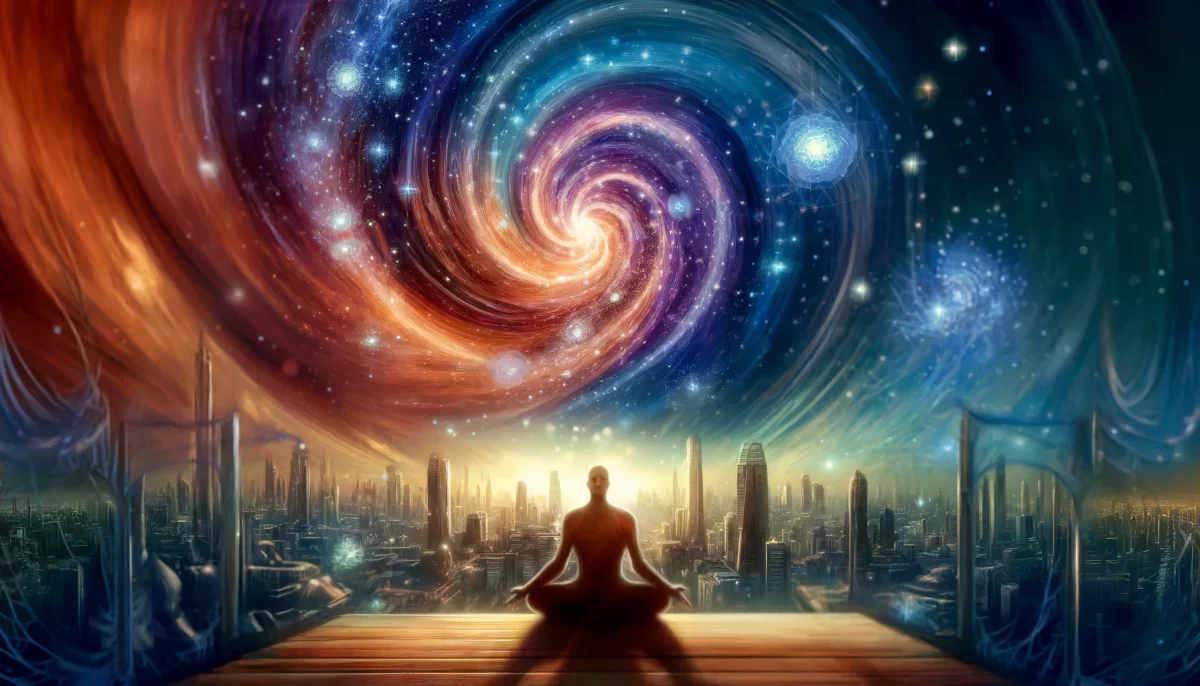
Leave a Reply